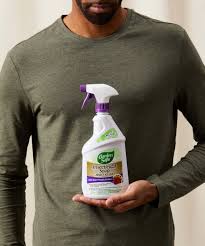The Benefits of Insecticidal Soap for Organic Pest Control
Insecticidal soap is a popular and effective tool in organic gardening for controlling common insect pests without the use of harsh chemicals. Made from natural ingredients, insecticidal soap works by suffocating soft-bodied insects on contact, making it a safe and environmentally-friendly alternative to synthetic pesticides.
How Does Insecticidal Soap Work?
When sprayed on plants, insecticidal soap disrupts the outer layer of insects like aphids, spider mites, whiteflies, and other pests, causing them to dehydrate and die. It is most effective against soft-bodied insects and larvae that are susceptible to suffocation.
Benefits of Using Insecticidal Soap:
- Safe for Beneficial Insects: Unlike chemical pesticides, insecticidal soap is less harmful to beneficial insects such as ladybugs, bees, and predatory mites that help control pest populations naturally.
- Environmentally-Friendly: Insecticidal soap breaks down quickly in the environment and does not leave harmful residues that can harm wildlife or contaminate water sources.
- Easy to Use: Simply mix with water according to the instructions on the product label and spray directly on affected plants. Repeat applications may be necessary for severe infestations.
- Suitable for Organic Gardening: Insecticidal soap is approved for use in organic farming and gardening practices by many certification organizations.
Tips for Using Insecticidal Soap Effectively:
To maximize the effectiveness of insecticidal soap in controlling pests in your garden, follow these tips:
- Apply Early in the Morning or Late in the Evening: To avoid harming beneficial insects like bees that are active during the day, apply insecticidal soap when they are less active.
- Cover Both Sides of Leaves: Make sure to thoroughly spray both the tops and bottoms of leaves where pests may be hiding.
- Monitor Plants Regularly: Check your plants regularly for signs of pest infestations so you can catch them early before they become a problem.
In conclusion, insecticidal soap is a valuable tool for organic gardeners looking to control common insect pests while minimizing harm to beneficial insects and the environment. By incorporating this natural solution into your pest management strategy, you can maintain healthy plants without resorting to synthetic chemicals. Consider adding insecticidal soap to your gardening toolkit for a more sustainable approach to pest control.
Essential FAQs About Insecticidal Soap: Usage, Precautions, Composition, and DIY Guide
- Does insecticidal soap need to be rinsed off?
- When not to use insecticidal soap?
- Is insecticidal soap just soap?
- How do I make my own insecticidal soap?
Does insecticidal soap need to be rinsed off?
When using insecticidal soap as a pest control solution in your garden, it is generally recommended to follow the instructions provided on the product label. In most cases, insecticidal soap does not need to be rinsed off after application. The soap residue left on the plants can continue to work against pests by disrupting their outer layer and ultimately leading to their demise. However, if you notice any negative effects on your plants or if the product label specifies rinsing, it is advisable to rinse the plants after a certain period of time. Always read and follow the manufacturer’s recommendations for best results when using insecticidal soap in your gardening practices.
When not to use insecticidal soap?
Insecticidal soap is a versatile and effective tool for controlling common insect pests in an organic and environmentally-friendly manner. However, there are certain situations when it may not be advisable to use insecticidal soap. Avoid applying insecticidal soap during hot, sunny days or when temperatures exceed the recommended range, as this can cause plant stress or leaf burn. Additionally, refrain from using insecticidal soap on drought-stressed plants or those with waxy or hairy leaves, as it may cause damage. It is also important to avoid spraying insecticidal soap on plants that are in direct sunlight to prevent rapid evaporation and potential harm to the plant. By being mindful of these factors, you can use insecticidal soap effectively while minimizing any potential negative impacts on your plants.
Is insecticidal soap just soap?
Insecticidal soap is not the same as conventional soap used for cleaning purposes. While both products contain soap as an ingredient, insecticidal soap is specifically formulated to control insect pests on plants. The key difference lies in the concentration and composition of the ingredients in insecticidal soap, which are designed to effectively target and eliminate soft-bodied insects like aphids, spider mites, and whiteflies without harming the plants themselves. Therefore, it is important to use insecticidal soap products that are specifically labeled for pest control purposes to ensure their efficacy and safety for your plants.
How do I make my own insecticidal soap?
To make your own insecticidal soap at home, you can follow a simple recipe using common household ingredients. Start by mixing 1 tablespoon of liquid dish soap (preferably mild and natural) with 1 quart of water in a spray bottle. Shake the mixture gently to ensure the soap is evenly distributed. Optionally, you can add a teaspoon of cooking oil (such as vegetable or olive oil) to help the solution stick to plant leaves. This DIY insecticidal soap can be used to control common garden pests like aphids, spider mites, and whiteflies. Remember to test the solution on a small area of your plants first to check for any adverse reactions before applying it more widely.

